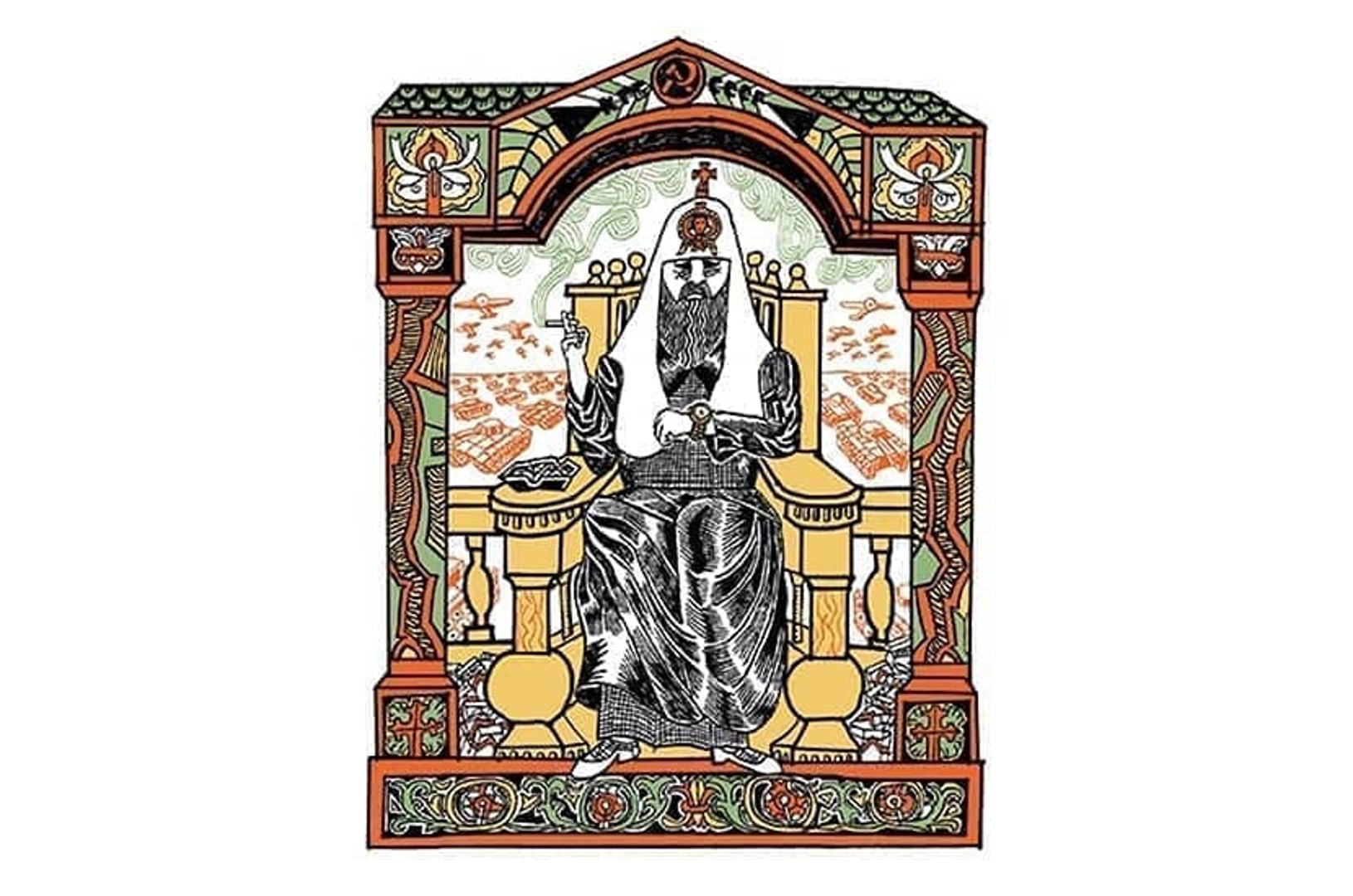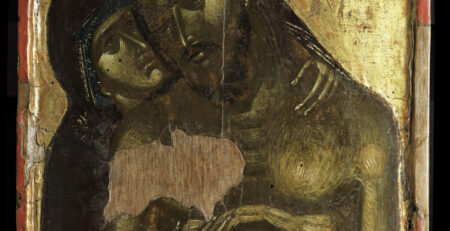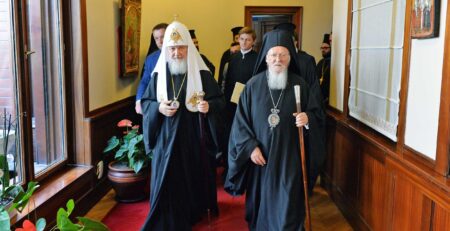Πώς ο Πούτιν όπλισε τη Ρωσική Ορθόδοξη Εκκλησία
“Η έγκριση( σ.σ: στην εισβολή της Ρωσίας στην Ουκρανία) του Πατριάρχη Μόσχας Κύριλλου παρέχει μια θρησκευτική λάμψη για την ιδεολογία του Κρεμλίνου για έναν «Russkiy Mir» ή έναν ρωσικό κόσμο. Ο όρος υπονοεί ότι το πεπρωμένο της Ρωσίας είναι να φέρει τους λαούς της πρώην τσαρικής και σοβιετικής αυτοκρατορίας υπό την ηγεσία της”, υποστηρίζει ο Fr. Mark Drew* σε άρθρο του στο “spectator.co.uk”
*Διαβάστε αυτούσιο το άρθρο στα αγγλικά:
In the week before Orthodox Lent began, some 233 Russian Orthodox priests published a petition calling for peace. The signatories spoke of the ‘fratricidal war in Ukraine’, with a call for an immediate ceasefire, and deplored ‘the trial that our brothers and sisters in Ukraine were undeservedly subjected to’. Anyone who knows how authority is exercised in the Russian Orthodox church, and how closely it has allied itself with Putin’s authoritarian state, will recognise the clerics’ courage. But what effect is it likely to have on the attitude of the highest authorities in the church?
To answer these questions, we need to understand not only the centuries-old link between political power and religious authority in Russia, but also the record of the key players. One major figure is Kirill I, Patriarch of Moscow and all Russia. He is an enthusiastic supporter of Putin’s and has not relented in his praise for the war. In his sermon on Forgiveness Sunday, he described Russia’s ‘military operation’ as justified and almost sacred. Repeating accusations of genocidal behaviour towards the breakaway Russian entities in the east, he complained that Ukrainians were waging a more sinister war at the meta-physical level, against Russia and against Christianity, by backing immoral causes like gay and transgender rights.
Kirill’s endorsement provides a religious gloss for the Kremlin’s ideology of a ‘Russkiy Mir’ or Russian world. The term implies Russia’s destiny is to bring the peoples of the former Tsarist and Soviet empires under its leadership. It looks back to the idea of Moscow as the ‘Third Rome’, which saw ‘Holy Russia’ as the protector of the Orthodox peoples. It is perfectly attuned to the nostalgic imperialism promoted by Putin.
The petition of the ‘peace priests’ is unlikely to be more than a minor irritation to Kirill. Its signatories constitute a tiny proportion of the more than 40,000 Russian Orthodox clergy and there are no metropolitans or other influential senior clerics among them. This does not mean that there are not many more priests who oppose the war. There are reports from inside Russia of enormous stress on priests reluctant to support the Kremlin. Few are willing to risk speaking out. Threats from above are mirrored by pressures from below. Outside the big cities, support for the war is strong among the elderly rural populations who rely exclusively on official sources for information, and who often form the backbone of their flocks.
For the moment, Kirill and Putin may think that they have little to fear from within the church in Russia. The effects of the war on their church’s relations with the outside world, however, will concern them more. Kirill now faces a setback in his campaign to assume the mantle of leadership within world Orthodoxy. The Orthodox church has no pope and Moscow seeks to supplant Bartholomew I, the Patriarch of Constantinople, who in theory is first among equals. In 2019, Bartholomew recognised an independent church in Ukraine. Although this church attracted a growing following, until the invasion the majority of Ukrainian Orthodox, particularly in the Russian-speaking east, remained loyal to Moscow. That loyalty is now strained. Whole dioceses have broken with Moscow, and this trend will likely continue. This matters, because the Ukrainian faithful of the Moscow patriarchate form a large proportion of the estimated 90 million members of Kirill’s church.
Another important contingent is formed by dioceses and parishes outside Russia and Ukraine, prized by the Kremlin as an important focus of Russian influence. Some, like the long-established Russian parish in Amsterdam, have already seceded. Others are distancing themselves. Most are likely to be experiencing difficulties in maintaining internal unity. Some independent national churches which had been tempted to back Moscow against Constantinople appear to be reconsidering.
Another worry is the effect on ecumenical relations. Kirill has said that he will never unite with non-Orthodox churches. At the same time, he has cultivated good relations with the Vatican and the World Council of Churches, in the belief that it enhanced his influence. In 2016, while in Cuba, he became the first Moscow Patriarch to meet a reigning Pope, and the two produced a statement which to many (including many Orthodox opposed to Russian hegemony) seemed astonishingly compliant with Moscow’s ecclesiastical Russkiy Mir doctrine.
Now Pope Francis has jettisoned the Vatican’s traditionally neutral approach to international conflicts by delivering an almost explicit rebuke to Kirill after a video conference, and has since clearly pointed the finger at Putin’s aggression. Even Rowan Williams, whose scholarship shows a particularly deep knowledge and love of the Russian religious tradition, has called for the Russian church to be excluded from the World Council of Churches unless its leadership repents.
A key part of the Kremlin’s strategy of exerting influence through its church has been through the weaponisation of culture-war rhetoric. Conservative Christians, from traditionalist Catholics and Orthodox to evangelical Protestants, have seen Kirill and his church as important allies in resisting the dominance of western liberal mores. Kirill’s reference to Gay Pride marches in his attack on Ukraine was deliberately aimed at bolstering support from these quarters.
The signs are that this backing is collapsing. There are of course some who prefer to believe the Kremlin’s preposterous version of events. But many others recognise the brutal authoritarianism lurking behind the mask of piety. The marriage of conservative moral principle with unscrupulous political expediency has been exposed.
It is impossible to see how secure Putin’s grip is on power, or what lies in store for the church which he has succeeded in instrumentalising as much as any tsar ever did. Kirill may see himself as the Tsar’s good servant, but God’s first. May God grant him a merciful hearing before the dread judgment seat, as the Orthodox liturgy prays. But the judgment of history may not be so merciful.
*Ο Fr. Mark Drew is a priest serving in the Archdiocese of Liverpool./ Τα ενυπόγραφα κείμενα απηχούν τις απόψεις των συγγραφέων τους.




